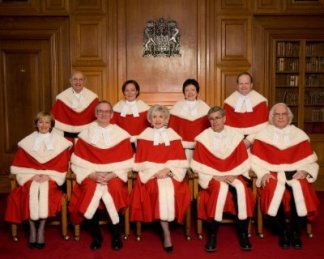In its first review of Canada's asset forfeiture laws, the Canadian Supreme court ruled last Friday that the government could not seize the home of a Vancouver woman who grew marijuana there. In Craig v. Crown, the court decided 5-2 that Judy Ann Craig could keep her home even though she was convicted of growing more than $100,000 worth of marijuana there.

"Full forfeiture may be anticipated, for example, in the case of a fortified property purchased for criminal purposes and solely dedicated to the commercial production and distribution of illegal substances, perhaps with a connection to organized crime," Justice Rosalie Abella wrote for the court majority. "On the other hand, one might decline to order forfeiture in the case of an individual with no criminal record and no connection to organized crime who grows very little marijuana in her home."
The rulings also direct lower courts to consider asset forfeiture separately from jail sentences or fines so that defendants are not allowed to in effect buy their way out of jail. "Those without property should not be treated more harshly than those who have it," Abella wrote. "In my view, the loss or retention of liberty should not depend on whether an individual has property available as a sacrificial alternative."
Craig, 57, had no criminal record when she began growing for a friend with AIDS in 1998. But she admitted making about $100,000 a year off her operation and had 186 plants when busted in 2003. Still, she was considered a small-time player with no ties to gangs. She served a one-year probationary sentence and paid a $100,000 fine for unpaid taxes and a victim surcharge of $15,000.
Craig's attorney, Howard Rubin, told The Canadian Press that he was thrilled with results. "She's not a career criminal. She's not a Hell's Angel. She's a lady, 57 years old, who works really hard," he said, adding that she currently worked as a wholesaler. "This was a huge weight on her that has now been relieved. This tool of forfeiture can wind up being really oppressive if it's used against people who have small grow operations, no record and no involvement with organized crime -- which is Ms. Craig."
This work by StoptheDrugWar.org is licensed under Creative Commons Attribution-ShareAlike 4.0 International
Comments
It is so cold in Canada...
that everybody has to dress like Santa Claus.
Add new comment